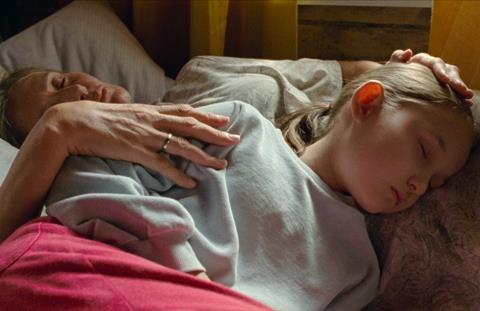Nastia Korkia’s drama, set during the second Chechen war, plays Hamburg after winning Venice’s Lion of the Future award

Dir: Nastia Korkia. Germany, France, Serbia. 2025. 101mins
Nastia Korkia’s fictional feature debut captures a rigorous portrait of childhood innocence existing under the shadow of war. Short Summer is a beautifully composed, acutely observed piece of storytelling delicately balancing the minutiae of family life with the impact of national events.
The look and feel of a sombre remembrance
The leisurely pace and sense of restraint of this tale set in a sleepy Russian village will define its commercial potential, but its artistic merits should attract significant festival play. Screened at the Giornate degli Autori in Venice, it won the Lion of the Future award, further marking Korkia as a talent to watch. Next it bows in Hamburg and then London.
Russian-born but now based in Germany and France, Korkia’s previous work includes the documentary GES-2 (2021) charting the transformation of a former power plant in Moscow into a cultural centre. She also co-directed Dreams About Putin (2023). Her documentary background is evident throughout Short Summer, with its eye for quirky detail and interesting characters. Static long shots and minimal editing invite the viewer to observe all of the different levels within a particular scene.
Korkia has said that there are autobiographical elements in the film. She chooses not to provide us with any context and never explicitly states where the film is set or when it unfolds. Instead, she provides clues in casual conversations, overheard radio news bulletins and glimpses into local lives.
Eight year-old Katya (Maiia Pleshkevich) is spending the summer with her grandparents at their house in the country. It has the feel of an annual tradition. Katya heads into the woods to collect mushrooms with grandpa (Aleksandr Feklistov) and snuggles next to grandma (Vesna Jovanovic) as she listens to a bedtime story.
We hear the name Chechnya and local conflicts briefly burst into the frame. An idyllic pastoral scene is interrupted by a manhunt involving groups of men and a pack of dogs. In one scene, children play football while a goods train laden with tanks and armoured vehicles progresses behind them. Katya hangs out with the local children and explores the area around a quarry. They open a box of treasures that includes a razor-sharp fragment of shrapnel.
There is an innocence to the way Katya plays and interacts with the world, and a constant sense that she is somehow distant from the complex, threatening conflicts all around her. All of the children remain unaware of how they are affected by the second Chechen war. As Katya’s grandparents return home, they are stopped by two boys of their granddaughter’s age who playfully act like checkpoint guards demanding to see their papers. During one errand with her grandfather, Katya overhears a conversation in which a woman is struggling to obtain a death certificate for her son only to be informed that officially he is merely missing in action. Closer to home, the certainty of her family life is also under threat. A long, lingering shot of her grandmother focuses on a woman who seems weary and bitter.
Shot on 16mm, Short Summer has the look and feel of a sombre remembrance. There is a village where the local men sit around a table and chat, a bus stop that attracts a three-legged dog, a fence where a drunken man lies slumped and clutching his precious bottle. A feeling of compassion infuses Korkia’s approach to the material and the way she secures naturalistic performances from her cast. Newcomer Maiia Pleshkevich is incredibly understated and unaffected in her performance, providing the calm centre of a world in which the only constant is change.
Production companies: Tamtam Film, Totem Atelier, Art & Popcorn
International sales: Totem Films, hello@totem-films.com
Producers: Natalia Drozd, Andrea Schutte, Dirk Decker, Berenice Vincent, Miroslav Mogorovic
Screenplay: Nastia Korkia, Mikhail Bushkov
Cinematography: Evgeny Rodin
Production design: Alisa Solovieva, Nikita Evglevski
Editing: Benjamin Mirguet
Main cast: Maiia Pleshkevich, Aleksandr Feklistov, Vesna Jovanovic, Yakov Karykhalin, Aleksandr Karpushin















![[L-R]: Amanda Villavieja, Laia Casanovas, Yasmina Praderas](https://d1nslcd7m2225b.cloudfront.net/Pictures/274x183/6/4/1/1471641_pxl_20251224_103354743_618426_crop.jpg)









No comments yet